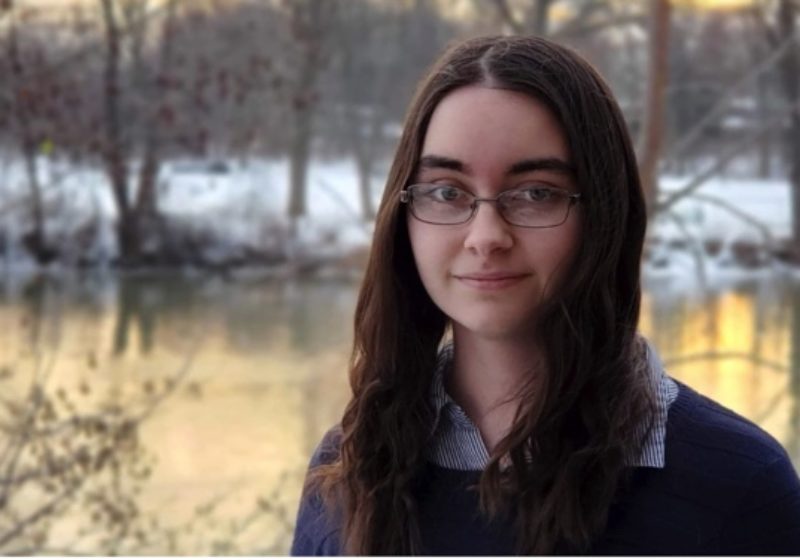Minecraft builder, juggler, and physicist. Scientists like senior Serena Flint are conducting research at the forefront of modern physics and pioneering new techniques in an ever-growing field: machine learning in spectropolarimetry.
Flint, a Physics and Astronomy major, is staying at UR for a Take Five program, where she will be studying the intermarriage of German language and culture. As an undergraduate, Flint majored in Physics and Astronomy. “Since I lived in a very rural area, I was able to look up at night and see way more stars than you could in, say, Rochester,” she said. “I really just enjoy being able to explore those unknowns and physics gives me the foundation to be able to do that.”
After a competitive application process, Flint was awarded a Physics Research Experience for Undergraduates grant from the National Science Foundation, which funds undergraduate research in physics.
Flint has spent her summers as a researcher at the National Solar Observatory under the supervision of Dr. Ivan Milic, a professor at UC Boulder, and is currently an intern for the High Altitude Observatory, working under Dr. Rebecca Centeno Elliot. There, she studies machine learning and its applications in spectropolarimetry, a subfield of solar physics.
Spectropolarimetry is the measurement of light that has been previously analyzed both spectroscopically and polarimetrically, and is a powerful tool used to diagnose magnetic fields in the solar atmosphere. “The problem is that we can’t go to the sun and just measure the temperature. You can’t just stick a thermometer and measure its physical properties. But we can collect polarized light and split that light into different spectra and invert it in order to infer what the atmosphere would look like.”
Easy, right? Not so fast.
Another issue arises when considering actively applying the traditional physics techniques, as they are both environmentally harsh and not easily accessible to all researchers. “In order to even do that inference, the code is very computationally expensive, so we end up with a surplus of information that we can’t process fast enough,” she explained.
The current standard uses complex python coding to develop a “least-squares fitting algorithm.” Each spectra that is developed from real data, would then be compared to spectra from an archive to locate the best match. A time consuming process, this type of analysis can take from four to 68 hours to perform. Without innovative machine learning techniques, the software has to “fully do the physics” and solve all of the necessary equations.
However, Flint’s machine learning research has shown that new codes can be defined to mimic the physics without actually doing the physics, a discovery that can save scientists time and resources. At UC Boulder, Flint has helped to make the software and code the necessary neural network and training sets. “The machines can then learn to just map the [data] input to the [data] output.”
A new field, there remains no true standard way of performing spectropolarimetry and analysis. “What I’m doing now shows that this is possible, but there is no stopping point,” Flint said. “This is only something that we can [continue to] optimize. We want to make sure that the algorithms [developed] are efficient and that they are just as accurate as the 60 hour field standard.”
A senior, Flint encourages undergrads to “not be discouraged” and “just shoot [their] shot” when scouring for research opportunities. “If you really enjoy something and you want to do research, apply, talk to professors, and don’t be afraid of making mistakes.”
Upon graduating, Flint plans on attending graduate school and pursuing a career in computational physics and scientific communication.
“STEM majors don’t necessarily realize the importance of communication science,” she said. “I want to find ways to encourage the retention of students in pursuing careers in STEM fields.”





